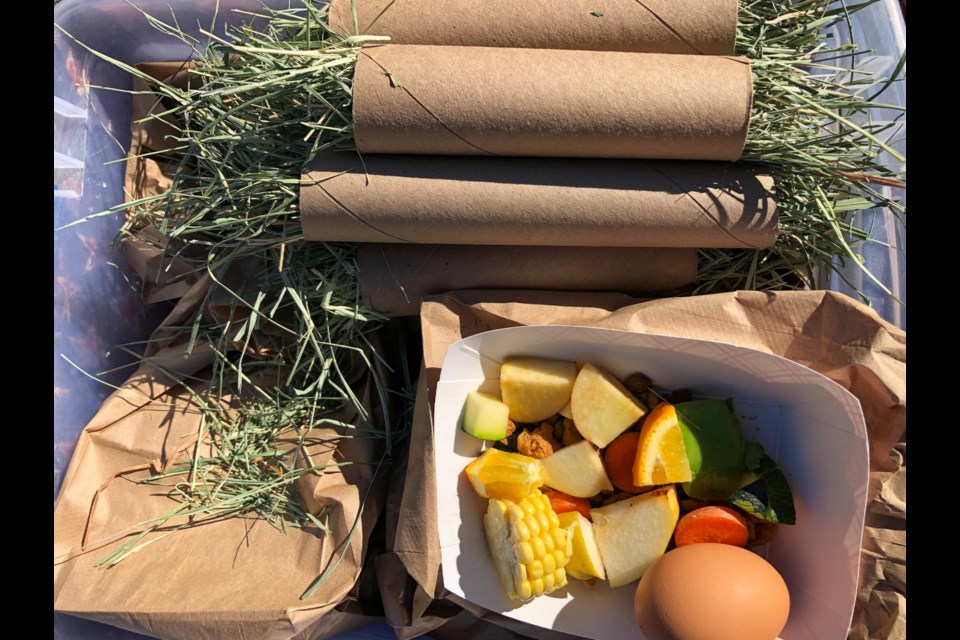Southwest Wildlife Conservation Center is home to many native Arizona species whose diets range drastically.
The majority of animals in our sanctuary are mammals, but we also encounter the occasional bird or reptile species. With this type of diversity, we find great differences in diets ranging from vegetarians to carnivores and everything in between.
A number of our animals are omnivorous so they are more generalist in their diet, but we also see many individuals within a species who prefer certain foods and can be quite picky.
Feeding times and diets are determined by our animal care manager for all sanctuary and releasable animals. Sanctuary animals get a variety of foods in their diet, including things that they wouldn’t find in their native habitats.
Releasable animals on the other hand, are offered foods they would only find in their natural environment. We do our best to teach the releasables what foods are available in the wild and where to find them so they’re more successful when released.
Our animal care specialists, veterinary staff and many volunteers take on the huge task of feeding and caring for these animals every day. We house between 100-200 animals in our sanctuary, a number that changes with the time of year.
Baby season, May through September, is our busiest time. Newborn babies require formula in place of their mother's milk to ensure they receive the proper nutrition. Many babies require extra feedings throughout the day, requiring our animal care and veterinary staff to syringe feed our neonates until they are able to eat solid foods on their own.
Fruits and vegetables make up a huge portion of our animal's diets, and we are fortunate to have local grocery stores and individuals donate fresh produce which supplements what we buy directly. Our carnivores and omnivores get a variety of meat including chicken, turkey, fish, mice and beef which we buy directly. Occasionally we accept meat donations, such as deer and elk directly from known hunters.
While our black bears, mountain lions and Mexican grey wolves enjoy these wild meats, we find changing their feeding routine is great for enrichment, bringing out their natural instincts for hunting and foraging. Each individual has their own preferences, so we are constantly adapting diet plans to accommodate the individual tastes while maintaining the best nutrition possible.
Join one of our tours to see for yourself!
Chelsea Lee-Wilkins is an animal care specialist at Southwest Wildlife Conservation Center.



